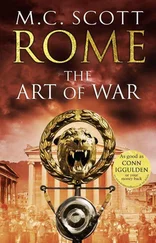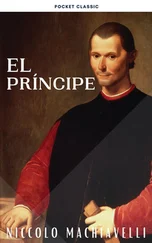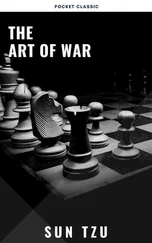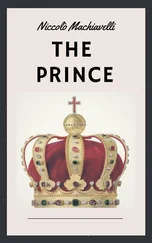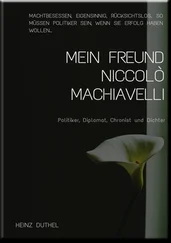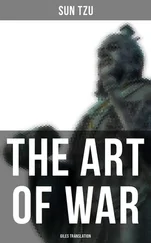COSIMO
I am very much content and satisfied with what you have said up to now, and this conclusion which you have made pleases me greatly: and I believe it will be true when expected from a Republic, but as to Kings, I do not yet know why I should believe that a King would not want particularly to have around him those who take up such a practice as their profession.
FABRIZIO
A well ordered Kingdom ought so much the more avoid such artifices, for these only are the things which corrupt the King and all the Ministers in a Tyranny. And do not, on the other side, tell me of some present Kingdom, for I will not admit them to be all well ordered Kingdoms; for Kingdoms that are well ordered do not give absolute (power to) Rule to their Kings, except in the armies, for only there is a quick decision necessary, and, therefore, he who (rules) there must have this unique power: in other matters, he cannot do anything without counsel, and those who counsel him have to fear those whom he may have near him who, in times of peace, desire war because they are unable to live without it. But I want to dwell a little longer on this subject, and look for a Kingdom totally good, but similar to those that exist today, where those who take up the profession of war for themselves still ought to be feared by the King, for the sinews of armies without any doubt are the infantry. So that if a King does not organize himself in such a way that his infantry in time of peace are content to return to their homes and live from the practice of their own professions, it must happen of necessity that he will be ruined; for there is not to be found a more dangerous infantry than that which is composed of those who make the waging of war their profession; for you are forced to make war always, or pay them always, or to risk the danger that they take away the Kingdom from you. To make war always is not possible: (and) one cannot pay always; and, hence, that danger is run of losing the State. My Romans ((as I have said)), as long as they were wise and good, never permitted that their citizens should take up this practice as their profession, notwithstanding that they were able to raise them at all times, for they made war at all times: but in order to avoid the harm which this continuous practice of theirs could do to them, since the times did not change, they changed the men, and kept turning men over in their legions so that every fifteen years they always completely re-manned them: and thus they desired men in the flower of their age, which is from eighteen to thirty five years, during which time their legs, their hands, and their eyes, worked together, nor did they expect that their strength should decrease in them, or that malice should grow in them, as they did in corrupt times.
Ottavianus first, and then Tiberius, thinking more of their own power than the public usefulness, in order to rule over the Roman people more easily, begun to disarm them and to keep the same armies continually at the frontiers of the Empire. And because they did not think it sufficient to hold the Roman People and the Senate in check, they instituted an army called the Praetorian (Guard), which was kept near the walls of Rome in a fort adjacent to that City. And as they now begun freely to permit men assigned to the army to practice military matters as their profession, there soon resulted that these men became insolent, and they became formidable to the Senate and damaging to the Emperor. Whence there resulted that many men were killed because of their insolence, for they gave the Empire and took it away from anyone they wished, and it often occurred that at one time there were many Emperors created by the several armies. From which state of affairs proceeded first the division of the Empire and finally its ruin. Kings ought, therefore, if they want to live securely, have their infantry composed of men, who, when it is necessary for him to wage war, will willingly go forth to it for love of him, and afterwards when peace comes, more willingly return to their homes; which will always happen if he selects men who know how to live by a profession other than this. And thus he ought to desire, with the coming of peace, that his Princes return to governing their people, gentlemen to the cultivation of their possessions, and the infantry to their particular arts (trades or professions); and everyone of these will willingly make war in order to have peace, and will not seek to disturb the peace to have war.
COSIMO
Truly, this reasoning of yours appears to me well considered: nonetheless, as it is almost contrary to what I have thought up to now, my mind is not yet purged of every doubt. For I see many Lords and Gentlemen who provide for themselves in times of peace through the training for war, as do your equals who obtain provisions from Princes and the Community. I also see almost all the men at arms remaining in the garrisons of the city and of the fortresses. So that it appears to me that there is a long time of peace for everyone.
FABRIZIO
I do not believe that you believe this, that everyone has a place in time of peace; for other reasons can be cited for their being stationed there, and the small number of people who remain in the places mentioned by you will answer your question. What is the proportion of infantry needed to be employed in time of war to that in peace? for while the fortresses and the city are garrisoned in times of peace, they are much more garrisoned in times of war; to this should be added the soldiers kept in the field who are a great number, but all of whom are released in time of peace. And concerning the garrisons of States, who are a small number, Pope Julius and you have shown how much they are to be feared who do not know any other profession than war, as you have taken them out of your garrisons because of their insolence, and placed the Swiss there, who are born and raised under the laws and are chosen by the community in an honest election; so do not say further that in peace there is a place for every man. As to the men at arms continued in their enlistment in peace time, the answer appears more difficult. Nonetheless, whoever considers everything well, will easily find the answer, for this thing of keeping on the men at arms is a corrupt thing and not good. The reason is this; as there are men who do not have any art (trade or profession), a thousand evils will arise every day in those States where they exist, and especially so if they were to be joined by a great number of companions: but as they are few, and unable by themselves to constitute an army, they therefore, cannot do any serious damage. Nonetheless, they have done so many times, as I said of Francesco and of Sforza, his father, and of Braccio of Perugia. So I do not approve of this custom of keeping men at arms, both because it is corrupt and because it can cause great evils.
COSIMO
Would you do without them?, or if you keep them, how would you do so?
FABRIZIO
By means of an ordinance, not like those of the King of France, because they are as dangerous and insolent as ours, but like those of the ancients, who created horsemen (cavalry) from their subjects, and in times of peace sent them back to their homes to live from the practice of their own profession, as I shall discuss at length before I finish this discussion. So, if this part of the army can now live by such a practice even when there is peace, it stems from a corrupt order. As to the provisions that are reserved for me and the other leaders, I say to you that this likewise is a most corrupt order, for a wise Republic ought not to give them to anyone, rather it ought to employ its citizens as leaders in war, and in time of peace desire that they return to their professions. Thus also, a wise King ought not to give (provisions) to them, or if he does give them, the reasons ought to be either as a reward for some excellent act, or in order to avail himself of such a man in peace as well as in war. And because you have mentioned me, I want the example to include me, and I say I have never practiced war as a profession, for my profession is to govern my subjects, and defend them, and in order to defend them, I must love peace but know how to make war; and my King does not reward and esteem me so much for what I know of war, as because I know also how to counsel him in peace. Any King ought not, therefore, to want to have next to him anyone who is not thusly constituted, if he is wise and wants to govern prudently; for if he has around him either too many lovers of peace or too many lovers of war, they will cause him to err. I cannot, in this first discussion of mine and according to my suggestion, say otherwise, and if this is not enough for you, you must seek one which satisfies you better. You can begin to recognize how much difficulty there is in bringing the ancient methods into modern wars, and what preparations a wise man must make, and what opportunities he can hope for to put them into execution. But little by little you will know these things better if the discussion on bringing any part of the ancient institutions to the present order of things does not weary you.
Читать дальше


